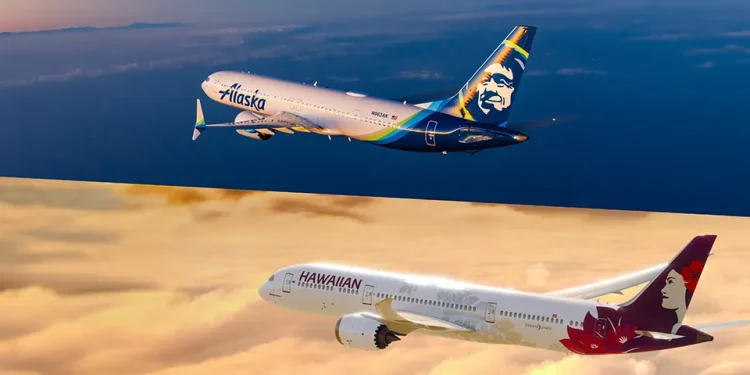By Eva Richardson
March 3, 2025 – In a significant move for the global air cargo industry, Alaska Air Cargo and Hawaiian Air Cargo have announced an ambitious expansion of their Asian belly cargo network, following Alaska Airlines’ $1.9 billion acquisition of Hawaiian Airlines. This development will enhance North America-Asia trade links, offering new capacity and improved connectivity for freight forwarders.
Strategic Growth in Transpacific Cargo
As part of this expansion, daily nonstop flights from Seattle (SEA) to Tokyo Narita (NRT) will commence on May 12, while Seattle to Seoul Incheon (ICN) services will follow in October. These new routes are expected to bolster transpacific trade, providing increased cargo capacity for industries reliant on just-in-time shipping.
For the first time, Alaska Airlines will operate widebody aircraft, significantly improving its freight capabilities. The airline’s Boeing 787 and Airbus A330 fleet will play a crucial role in supporting the growing demand for airfreight between Asia and the U.S.
Boost for E-Commerce and High-Value Freight
Industry analysts highlight that this move is particularly beneficial for the e-commerce and high-value goods sectors, which require fast and reliable transpacific shipping solutions.
“This expansion provides much-needed additional capacity at a time when airfreight demand between North America and Asia is surging,” said Mark Davidson, CEO of Global Freight Solutions, in an exclusive interview with The Logistic News. “We anticipate a reduction in transit times and improved service reliability for shippers moving electronics, pharmaceuticals, and perishables.”
Competitive Pressure on Existing Operators
The increased presence of Alaska and Hawaiian Air Cargo in the Asia-Pacific market will introduce competition for legacy carriers such as United Airlines, Delta Cargo, and Korean Air Cargo. With new capacity and optimized routes, these airlines will now have to adapt to a more dynamic market.
Glyn Hughes, Director General of The International Air Cargo Association (TIACA), emphasized the significance of this development. “The addition of two strong players in the transpacific cargo sector will reshape the competitive landscape and offer shippers more flexibility in their supply chain decisions,” Hughes stated.
Future Prospects: More Destinations to Come?
Alaska Air Cargo has hinted at potential future expansions to other key Asian markets, including Shanghai (PVG) and Hong Kong (HKG), should demand continue to rise. The newly combined airline will also introduce enhanced domestic belly cargo operations starting in March 2025, further strengthening its logistics capabilities.
What’s Next?
With Asia-Pacific trade continuing to grow, the entry of Alaska and Hawaiian into this competitive market marks a turning point for air cargo connectivity. Freight forwarders and logistics operators will now have more options to optimize their shipping strategies, benefiting from increased flight frequencies and expanded capacity.
For the latest updates on this and other major developments in the air cargo industry, stay tuned to The Logistic News.





















